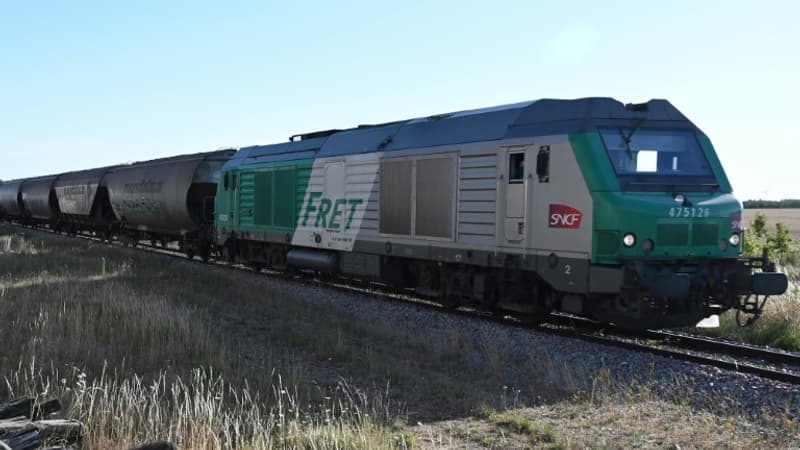Once again, the situation of Fret SNCF is critical. In fact, an investigation by the European Commission is interested in the support received by the 100% subsidiary of SNCF during the period 2007-2019, and in particular in the cancellation of its debt of 5.3 billion euros.
This was integrated into the debt of the SNCF group holding company when it was refounded at the beginning of 2020 in application of the latest railway reform.
Brussels could declare this aid illegal because it does not comply with EU rules on state aid, which would automatically cause Fret SNCF to go bankrupt, unable to repay it.
To avoid this situation, the Government has proposed a plan that provides for the creation of a new entity that will retain 80% of the activity and sell the rest to competitors who currently represent 30% of the traffic and 20% of the turnover. of Fret SNCF. This will mean the elimination of 470 positions.
This new entity will continue to be majority controlled by the SNCF and, therefore, public, but it may be open capitalistally to other public or private companies.
“Leaded feet”
Although the time has come for a modal shift towards rail, MEPs wonder about the situation of this activity which, on paper, should be in good health. But the subsidiary has never managed to stay afloat and the deputies want to know why.
During a commission of inquiry of the National Assembly, ministers and leaders were interviewed to explain Fret SNCF’s descent into hell and give their opinion on the plan proposed by the executive.
In addition to the structural reasons – a huge and chronic underinvestment in infrastructure that quickly made Fret SNCF much less competitive than the road for the transport of goods – Guillaume Pepy, former director general of the SNCF, described the factors that have weighed down the subsidiary. And there are many.
He thus pointed out that Fret SNCF’s last aid plan, authorized by Brussels in 2005, “collapsed with the arrival of competition.”
Above all, the subsidiary, he told the deputies, has “lead feet”, with high production costs, inadequate organization, the lack of a customer culture and the harmful effects on the “greviculture” traffic, as reported the AFP.
Abandoning the ecotax
“We have assumed total solidarity with respect to the freight transport activity”, and in particular with the losses, debt and “quite brutal” restructuring of the subsidiary that did not generate income before 2021.
Guillaume Pepy also regretted that the ambitious recovery plan for rail freight transport presented by Jean-Louis Borloo in 2009 has not been implemented.
Subsequently, the brutal abandonment by Ségolène Royal in 2014 of the eco-tax, which was going to affect heavy vehicles, “was a real blow to the head”, according to him.
His successor and current head of the operator, Jean-Pierre Farandou, is in the same line: he reminded the deputies that this tax should generate around one billion euros per year.
Will the plan presented by the government allow the new SNCF Freight to get back on track? The unions doubt it.
“Neither collapse nor abandonment”
At the CFDT we do not fully understand how Brussels can endanger this activity and at the same time defend the railway for the transport of goods. “We are going to challenge them in the face of the paradox they are creating,” said Thomas Cavel, general secretary of the CFDT-Cheminots.
In front of the deputies, Clément Beaune, Minister of Transport, wants to be reassuring. “There is no collapse, no abandonment, no resignation about the situation or the future of rail freight transport, including public transport.”
“We do not agree to play Russian roulette with the future of Fret SNCF or its employees,” said Prime Minister Elisabeth Borne. “We took the initiative” and presented in spring a “transformation” plan for this subsidiary that “preserves the coherence of activity, full integration into the SNCF group and the public identity of the new entity,” she said.
A promise of 4,000 million euros between 2023 and 2032
However, we cannot really say that this rescue plan and the means implemented will reassure the SNCF management. Before the commission of inquiry, Jean-Pierre Farandou stressed that he would “need the State” so that his freight division could recover.
“I need the State to guarantee that the new society (…) has economic conditions that can give it real perspectives, both for living and developing,” he stated.
The leader spoke of aid for the exploitation of freight transport and the renewal of the network, “the mother of battles”, according to him, “in a fairly solid, massive and rapid way.” Because it is the obsolescence of these infrastructures (roads, classification, etc.) that hinders the activity of Fret SNCF.
The government, which still plans to double the modal share of rail, compared to road and waterways, by 2030, announced, in parallel with the announcement of the plan, to invest an additional 4 billion euros between 2023 and 2032 in infrastructure and an increase . in aid to the sector worth 200 million a year, until 2030.
But, as often happens, the financing of this plan has not been specified, which leaves the SNCF in suspense.
Source: BFM TV


